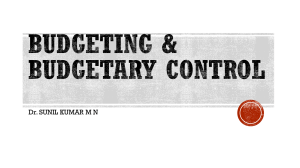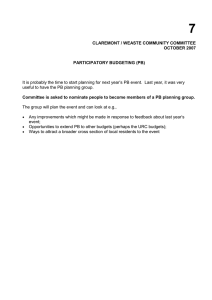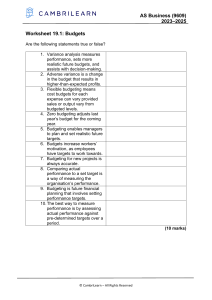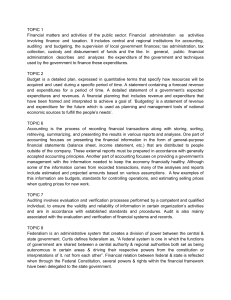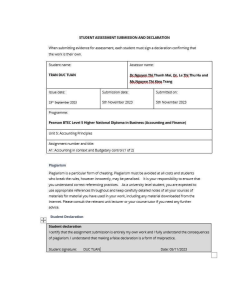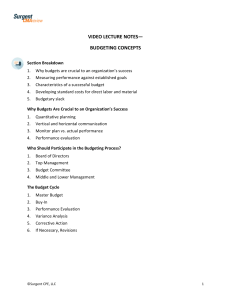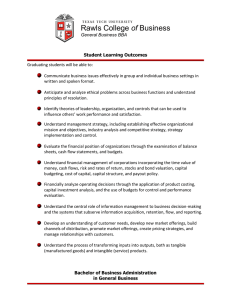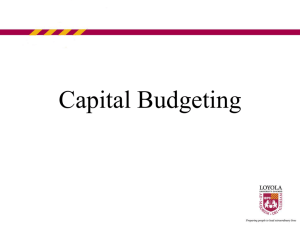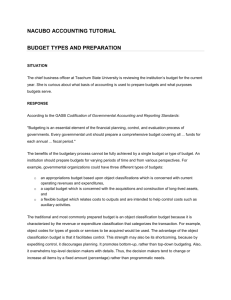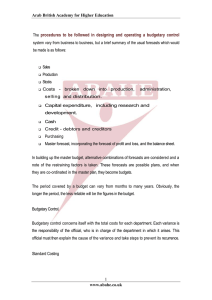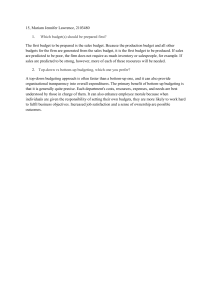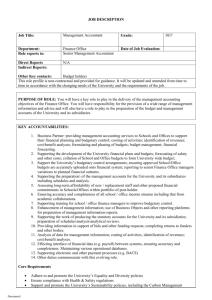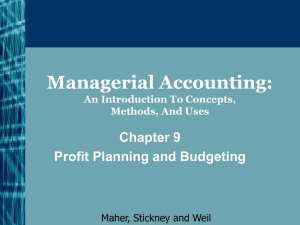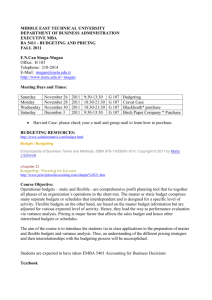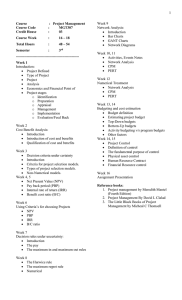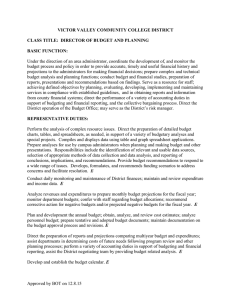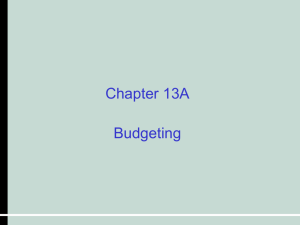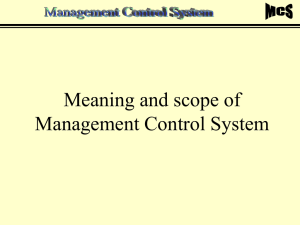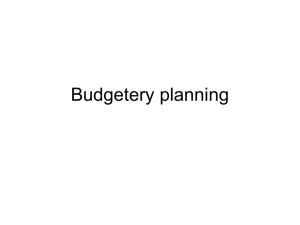budgets - teachmebusiness.co.uk
advertisement
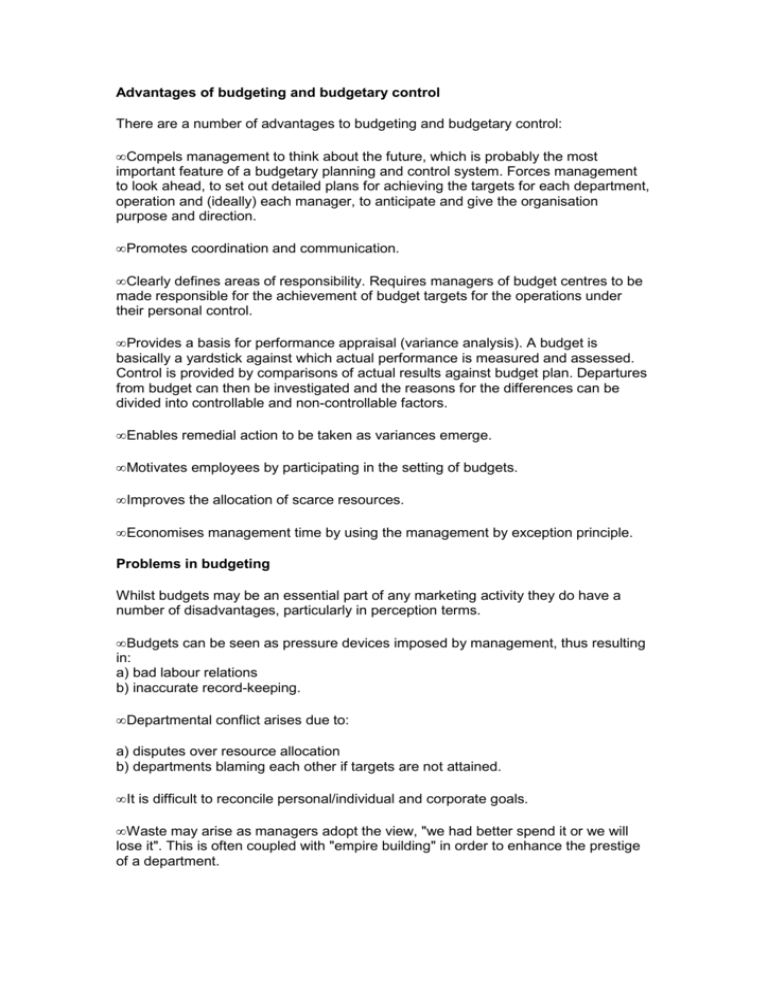
Advantages of budgeting and budgetary control There are a number of advantages to budgeting and budgetary control: • Compels management to think about the future, which is probably the most important feature of a budgetary planning and control system. Forces management to look ahead, to set out detailed plans for achieving the targets for each department, operation and (ideally) each manager, to anticipate and give the organisation purpose and direction. • Promotes coordination and communication. • Clearly defines areas of responsibility. Requires managers of budget centres to be made responsible for the achievement of budget targets for the operations under their personal control. • Provides a basis for performance appraisal (variance analysis). A budget is basically a yardstick against which actual performance is measured and assessed. Control is provided by comparisons of actual results against budget plan. Departures from budget can then be investigated and the reasons for the differences can be divided into controllable and non-controllable factors. • Enables remedial action to be taken as variances emerge. • Motivates employees by participating in the setting of budgets. • Improves the allocation of scarce resources. • Economises management time by using the management by exception principle. Problems in budgeting Whilst budgets may be an essential part of any marketing activity they do have a number of disadvantages, particularly in perception terms. • Budgets can be seen as pressure devices imposed by management, thus resulting in: a) bad labour relations b) inaccurate record-keeping. • Departmental conflict arises due to: a) disputes over resource allocation b) departments blaming each other if targets are not attained. • It is difficult to reconcile personal/individual and corporate goals. • Waste may arise as managers adopt the view, "we had better spend it or we will lose it". This is often coupled with "empire building" in order to enhance the prestige of a department. Responsibility versus controlling, i.e. some costs are under the influence of more than one person, e.g. power costs. • Managers may overestimate costs so that they will not be blamed in the future should they overspend.
